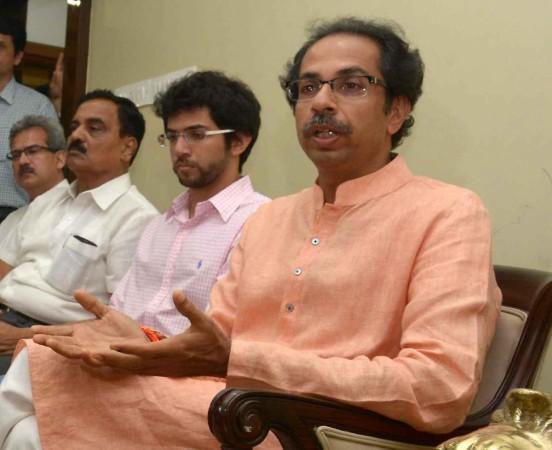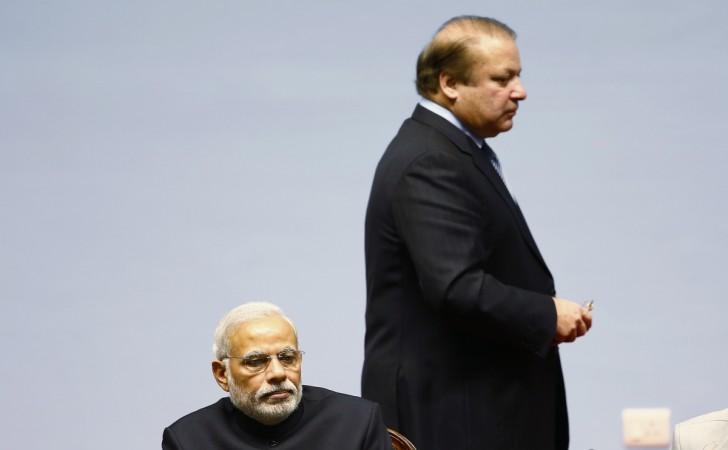
Shiv Sena chief Uddhav Thackeray urged Prime Minister Narendra Modi to "tear Pakistan into pieces" at a recent gathering of his party's workers in Mumbai. Reflecting the prevalent mood of the nation in the wake of the mutilation of two Indian jawans by the Pakistani forces in Jammu and Kashmir (though the Pakistanis denied committing such an atrocious act later), Thackeray said the BJp should strengthen the country and not just itself and hence the prescription.
Now, this idea of "tearing up Pakistan" is popular in India. Be it the common man whose opinion on the matter is shaped mostly by a jingoist media or the vote-monger parties that find a safe shelter under the umbrella of nationalism to keep every other pressing issue under the carpet, calling for Pakistan's dismemberment is a sound verbal investment. It always finds more takers than not.
Also read: The Indian media is fooling people; we have little realistic options to tame Pakistan
The real impact of such a step, however, will be completely opposite to the public perception. Pakistan might be a failed state politically or a rogue state as many prefer it to call, but its geo-strategic significance is always key and it will remain so for time to come.
Pakistan has a crucial strategic location for several quarters
Located at a strategic position linking South and West Asia and also a neighbour to the fragile Afghanistan and close to the Xinxiang province of China and also not very far from the central Asian republics, Pakistan is always important for the international community when it comes to finding a foothold in Asia.
And with terrorism refusing to die down in the world's largest continent, the relevance of Pakistan in the scheme of things is set to continue.

Big powers like the US, China and Russia have hence not lost interest on a country like Pakistan because it is strategically significant for them. Pakistan's presence in the much talked-about China Pakistan Economic Corridor, the development of its Gwadar Port by the Chinese, the growing rapport between Islamabad and Moscow of late or the US administration's reluctance to completely dump Islamabad despite the hot talks prove the country's significance in international politics.
It was not without a reason that the US and China had backed Pakistan, even it was a country with mediocre political and economic success, in the days of the Cold War. Even in the post-9/11 days, Washington had given Pakistan a weight since it was a key component in the struggle against terrorism. Even today, it is Pakistan more than India that the West needs to rebuild Afghanistan.
Modi was working on isolating Pakistan but the strategy has lost direction
Against this background, it is not only impossible for India to tear Pakistan apart not only because it also has nuclear weapons but also because it is very difficult to isolate Pakistan completely on the world stage. In the beginning, Prime Minister Narendra Modi seemed to have made an impression that he was indeed isolating Pakistan [read developing Chabahar Port in Iran] but that momentum was lost as Beijing threw its weight behind Islamabad as a counter-move. India really has no clear roadmap to approach the Pakistan problem at the moment, which speaks volume about the issue's intricacy.
Also, the USA's hesitant stance on alienating Pakistan despite criticising it openly has not helped Modi's cause much. Islamabad is back to its form and with its reformist Prime Minister Nawaz Sharif in a spot now, there is very little chance of the unruly elements in that country could be controlled effectively now.

India certainly has the onus on its shoulders to deal with Pakistan and the terrorism it sponsors. But dismemberment of Pakistan is certainly not the way out. If, for argument's sake, Pakistan is dismembered, New Delhi will see the threat emanating from its western border multiplying. For if a nuclear-powered Pakistan ceases to exist today, there will be a massive vacuum in that region and the chaos that will follow will escalate to a point of no return. It will not only be an ultimate challenge for India's own security but for the entire world.
True, India had liberated East Pakistan but we have a serious threat in Bangladesh today
Now, some will argue that India has done a similar thing in the past by helping East Pakistan to emerge as a sovereign country called Bangladesh. First of all, Pakistan was backed by the US and China at that time too, making India to balance the adversity out by reaching out to Russia.
Secondly, it was an age when nuclear weapons' club was still not democratised as it is today and being a superior power in terms of conventional military, India always had the advantage over Pakistan. And thirdly, the case of Bangladesh had given India an opportunity to involve itself to see Pakistan's downfall since it was a horrific humanitarian crisis. On what grounds will India dismember Pakistan today?
Moreover, it is also necessary to understand that the birth of Bangladesh has not proved to be helpful for India in the long run. Even though the government of Sheikh Hasina is India-friendly, the country has emerged as a major headache for India's security [read infiltration, terrorism links]. We yet have no knowledge about what Bangladesh could be like in the post-Hasina days or if she loses power in the near future. The dismemberment of Pakistan hasn't really gone to India's favour in the east.
Let's thus not engage in wild thoughts and try to understand how Pakistan's elected government can be made stronger in the days to come so that the threat from across the LoC is minimised, if not completely neutralised, in future.
As for Thackeray, he can concentrate on the next Lok Sabha and Maharashtra Assembly elections.

















